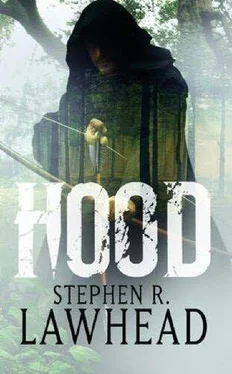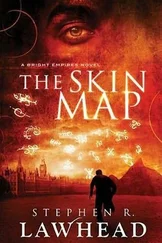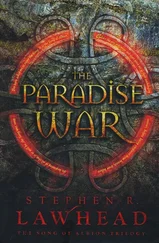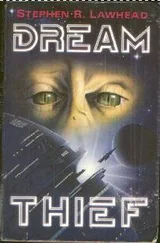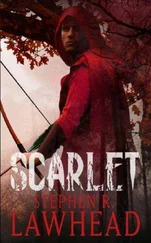Stephen Lawhead - Hood
Здесь есть возможность читать онлайн «Stephen Lawhead - Hood» весь текст электронной книги совершенно бесплатно (целиком полную версию без сокращений). В некоторых случаях можно слушать аудио, скачать через торрент в формате fb2 и присутствует краткое содержание. Жанр: Фэнтези, на английском языке. Описание произведения, (предисловие) а так же отзывы посетителей доступны на портале библиотеки ЛибКат.
- Название:Hood
- Автор:
- Жанр:
- Год:неизвестен
- ISBN:нет данных
- Рейтинг книги:4 / 5. Голосов: 1
-
Избранное:Добавить в избранное
- Отзывы:
-
Ваша оценка:
- 80
- 1
- 2
- 3
- 4
- 5
Hood: краткое содержание, описание и аннотация
Предлагаем к чтению аннотацию, описание, краткое содержание или предисловие (зависит от того, что написал сам автор книги «Hood»). Если вы не нашли необходимую информацию о книге — напишите в комментариях, мы постараемся отыскать её.
Hood — читать онлайн бесплатно полную книгу (весь текст) целиком
Ниже представлен текст книги, разбитый по страницам. Система сохранения места последней прочитанной страницы, позволяет с удобством читать онлайн бесплатно книгу «Hood», без необходимости каждый раз заново искать на чём Вы остановились. Поставьте закладку, и сможете в любой момент перейти на страницу, на которой закончили чтение.
Интервал:
Закладка:
He dimly remembered a story about a starving prophet fed by crows. "Bring me bread."
"What?" asked the bird, stretching its wings.
"Bread," Bran said, his voice a breathless groan. "Bring me some bread."
The rook cocked its head to one side. "What?"
"Stupid bird." Angered by the rook's refusal to aid in his revival, Bran dragged himself to his feet once more. The bird started at the movement; it flew off shrieking, its cry of "Die! Die!" echoing through the wood.
Bran looked around and realised with a sinking heart that he had dreamed most of the day away. He moved on then, dejected and afraid to trust his increasingly unreliable judgement. The wounds to his chest and back throbbed with every step and were hot to the touch. As daylight deteriorated around him, his steps slowed to an exhausted shuffle; hunger burned like a flame in his gut, and it hurt his chest to breathe. The long day ended, leaving him worse off than when it had begun, and night closed over him like a fist. He closed his eyes beneath the limbs of a sheltering elm and spent an uncomfortable night on the ground.
When he rose again the next morning, he was just as weary as when he lay down. Climbing to his feet on that second day, he felt fear circling him like a preying beast. He remembered thinking that if he did not find a trail out of the wood, this day might be his last. That was when he had decided to follow the next stream he found, thinking that it would eventually lead to the river that ran through the middle of Elfael.
This he did, and at first it seemed his determination would be rewarded, for the forest thinned and he glimpsed open sky ahead. Closer, he saw sunlight on green grass and imagined the valley spreading beyond. He limped toward the place and, as he passed the last trees, stepped out into a wide meadow-at the centre of which was a shimmering pool. Dragonflies flitted around the water's edge, and larks soared high above. The stream he had been following emptied itself into the pool and, so far as he could tell, did not emerge again.
It had taken him the better part of two days to reach another dead end, and now, as he gazed around him, he knew his strength was gone. Hope crushed to a cold cinder, Bran staggered stiff legged through the long grass to stand gazing down into the water, too tired to do anything but stand.
After a time, he lowered himself painfully down to kneel at the water's edge, drank a few mouthfuls, then sat down beside the pool. He would rest a little before moving on. He fell back in the grass and closed his eyes, giving way to the fatigue that paralysed him. When he woke again, it was dark. The moon was high above a line of clouds moving in from the northwest. Exhausted still, he closed his eyes and went back to sleep.
It rained before morning, but Bran did not rise. And that was how the old woman found him the next day.
She hobbled from the forest on her stout legs and stood for a long time contemplating the wreck of him. "Dost thou ever seek half measures?" she asked, glancing skyward. "Whether 'tis meet or ill, I know not. But heavy was the hand that broke this reed."
She paused, as if listening. "Oh, aye," she muttered. "Aye and ever aye. Your servant obeys."
With that she removed the moth-eaten rag that was her cloak and placed it over the wounded man. Then she retreated to the forest the way she had come. It was midday before she returned, leading two ragged men pulling a handcart. She directed them to the place where she had found the unconscious young man; he was where she left him, still covered by her cloak.
"We could dig a grave," suggested one of the men upon observing the wounded stranger's pale, bloodless flesh. "I do believe 'twould be a mercy."
"Nay, nay," she said. "Take him to my hearth."
"He needs more than hearth care," observed the man, scratching a bristly jaw "This 'un needs holy unction."
"Go to, Cynvar," the old woman replied. "If thou wouldst but stir thyself to action-and yon stump with thee"-she indicated the second man still standing beside the cart "methinks we mayest yet hold death's angel at bay."
"You know best, hudolion," replied the man. He motioned to his fellow, and the two lifted the stranger into the cart. The movement caused the wounded man to moan softly, but he did not waken.
"Gently, gently," chided the old woman. "I have work enough without thee breaking his bones."
She laid a wrinkled hand against the pale young stranger's wounded cheek and then touched two fingers to his cold brow. "Peace, beloved," she crooned. "In my grasp I hold thee, and I will not let thee go."
Turning to the men once more, she said, "Grows the grass beneath thy feet? About thy business, lads! Be quick."
CHAPTER
16
Count Falkes de Braose anticipated the arrival of his cousin with all the fret and ferment of a maid awaiting a suitor. He could not remain seated for more than a few moments at a time before he leapt to his feet and ran to inspect some detail he had already seen and approved twice over. Ill at ease in his own skin, he started at every stray sound, and each new apprehension caused his heart to sink: What if Earl Philip arrived late? What if he met trouble on the way? What if he did not arrive at all?
He fussed over the furnishings of his new stronghold: Were they adequate? Were they too spare? Would he be considered niggardlyor worse yet, a spendthrift? He worried about the preparation of the feast: Was the fare sumptuous enough? Was the wine palatable? Was the meat well seasoned? Was the bread too hard, the soup too thin, the ale too sweet or too sour? How many men would come with Philip? How long would they stay?
When these and all the other worries overwhelmed him, he grew resentful of the torment. What cause did Philip have to be angry with him? After all, he had taken Elfael with but a bare handful of casualties. Most of the footmen had not even used their weapons. His first campaign, and it was an absolute triumph! What more could anyone ask?
By the time Philip, Earl of Gloucester, arrived with his retinue late in the day, Falkes was limp with nervous exhaustion. "Cousin!" boomed Philip, striding across the pennon-festooned yard of Caer Cadarn. He was a tall, long-legged man, with dark hair and an expanding bald spot that he kept hidden beneath a cap trimmed in marten fur. His riding gauntlets were trimmed in the same fur, as were the tops of his boots. "It is good to see you, I do declare it! How long has it been? Three years? Four?"
"Welcome!" uttered Falkes in a strangled cry. He loped across the yard with unsteady strides. "I pray you had an uneventful journeypeaceful, that is."
"It was. God's grace, it was," answered Philip, pulling his kinsman into a rough embrace. "But you now-are you well?" He cast a quizzical eye over his younger cousin. "You seem pale and fevered."
"It is nothing-an ague born of anticipation-it will pass." Falkes turned and flapped a hand in the vague direction of the hall. "Valroix Palace it is not," he apologised, "but consider it yours for as long as you desire to stay."
Philip cast a dubious glance at the crude timber structure. "Well, so long as it keeps the rain off, I am satisfied."
"Then come, let us share the welcome cup, and you can tell me how things stand at court." Falkes started across the yard, then remembered himself and stopped. "How is Uncle? Is he well? It is a shame he could not accompany you. I should like to properly thank him for entrusting the settlement of his newest commot to me."
"Father is well, and he is pleased, never fear," replied Philip de Braose. Removing his gauntlets, he tucked them in his belt. "He would have liked nothing better than to accompany me, but the king has come to rely on him so that he will not abide the baron to remain out of sight for more than a day or two before calling him to attendance. Nevertheless, the baron has instructed me to bring him a full account of your deeds and acquisitions."
Читать дальшеИнтервал:
Закладка:
Похожие книги на «Hood»
Представляем Вашему вниманию похожие книги на «Hood» списком для выбора. Мы отобрали схожую по названию и смыслу литературу в надежде предоставить читателям больше вариантов отыскать новые, интересные, ещё непрочитанные произведения.
Обсуждение, отзывы о книге «Hood» и просто собственные мнения читателей. Оставьте ваши комментарии, напишите, что Вы думаете о произведении, его смысле или главных героях. Укажите что конкретно понравилось, а что нет, и почему Вы так считаете.
